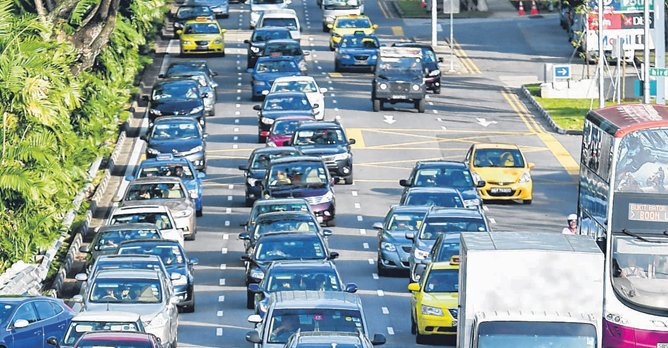COE, vehicle tax revenue shrinks for FY2019
18 Feb 2020|2,777 views
Revenue from Certificates Of Entitlement (COE) and vehicle registration taxes for the financial year ending 31 March 2020 will shrink by $1.1 billion to among their lowest levels in recent years.
According to the Budget statement, Singapore's operating revenue for the year has been revised 0.2% lower, to $74.7 billion. The decrease was partly because of lower-than-expected collections from motor vehicle taxes and vehicle quota premiums.

On top of that, more cars qualified for tax breaks under the Vehicular Emissions Scheme (VES), which metes out rebates and surcharges based on a car's emission levels.
Revenue from COE was estimated at $2.9 billion - $0.5 billion or 15.1% lower than the budgeted estimate. This was mainly because of a smaller-than-projected COE quota.

In comparison, the actual FY2018 revenue from COEs was $3.62 billion, while revenue from vehicle taxes was $2.62 billion.
Looking ahead, COE collection for FY2020 is projected to shrink further to $2.64 billion, while revenue from vehicle taxes is expected to fall to $2.27 billion. Expenditure for transport for FY2020 is expected to increase by $0.7 billion or 7.1%, fuelled by MRT projects.
Revenue from Certificates Of Entitlement (COE) and vehicle registration taxes for the financial year ending 31 March 2020 will shrink by $1.1 billion to among their lowest levels in recent years.
According to the Budget statement, Singapore's operating revenue for the year has been revised 0.2% lower, to $74.7 billion. The decrease was partly because of lower-than-expected collections from motor vehicle taxes and vehicle quota premiums.

Fewer-than-projected registrations brought Motor vehicle tax collections to 20.5% lower than the budgeted estimate
On top of that, more cars qualified for tax breaks under the Vehicular Emissions Scheme (VES), which metes out rebates and surcharges based on a car's emission levels.
Revenue from COE was estimated at $2.9 billion - $0.5 billion or 15.1% lower than the budgeted estimate. This was mainly because of a smaller-than-projected COE quota.

In comparison, the actual FY2018 revenue from COEs was $3.62 billion, while revenue from vehicle taxes was $2.62 billion.
Looking ahead, COE collection for FY2020 is projected to shrink further to $2.64 billion, while revenue from vehicle taxes is expected to fall to $2.27 billion. Expenditure for transport for FY2020 is expected to increase by $0.7 billion or 7.1%, fuelled by MRT projects.
Latest COE Prices
February 2026 | 2nd BIDDING
NEXT TENDER: 04 Mar 2026
CAT A$106,501
CAT B$105,001
CAT C$74,999
CAT E$112,890
View Full Results Thank You For Your Subscription.



















